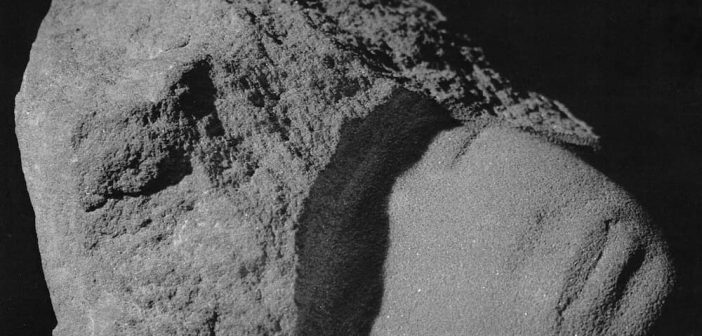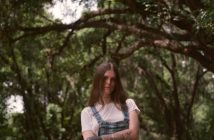Their greatest music since 1989 and an anthem for those losing their worlds.
-
1010
After 16 years, The Cure has returned with an exquisitely desolate album, Songs of a Lost World, guided by the masterfully dispiriting talent of frontman Robert Smith. It is undoubtedly their greatest music since Disintegration (1989). Beautifully downcast and alluringly bleak, Smith uses the track listing to express his feelings on profoundly demoralizing subjects, including the hopelessness of his past disappearing, suffering personal grief and regret from existential heartbreak.
As a devoted Cure fan and longtime goth, Songs of a Lost World is an album I’ve been waiting for since it was first mentioned by Robert Smith in 2019. Their last discography entry was 4:13 Dream (2008), marking the beginning of a long hiatus away from the studio. The slow reveal of further details only heightened the anticipation, and in 2022, I had the privilege of seeing them in London during their Shows of a Lost World tour, where they played five new songs, and Smith promised the album would come very soon.
Naturally, there were rumours and speculation if this mysterious record would ever materialize, but it was finally released to the delight of fans on November 1st, All Souls Day, traditionally associated with remembering the dead. This choice of release date adds another layer of depth to the album’s themes of loss and grief.
The songs resonate with the darkness seen in the Cure’s early development, with Faith (1981) and Pornography (1982) serving as an exploration of adolescence solitude. However, the emotional intensity of this record is truly monumental, similar to the imposing atmosphere of Disintegration (1989) and Bloodflowers (2000). The overwhelming sense of finality and vehement anger that everything is coming to an end, coupled with the never-ending distress of seeing life fade, is a powerful statement of the torment of growing old and the inevitability of death.
The magnificent opener, ‘Alone’, immediately establishes the morose and despairing tone of the record. Robert’s haunting and exceptional vocals leave you in complete awe. Simon Gallup’s superbly throbbing bassline, which sets the heavy rhythm, is outstanding, and Jason Cooper’s formidable thundering drums are reminiscent of a forgotten past. You can read my full review here.
‘And Nothing is Forever’ is a saddening and tragic ballad about being together at the end and being remembered after death. Robert Smith revealed it was about a failed promise to be with someone when they were dying. He sings, ‘As you hold for me for the last time, in the dying of the life’ and ‘I know my world has grown old, Nothing is Forever’. The keyboards from Rodger O’Donnell are brilliant, adding a sense of mystery and are similar to a type of sorrowful lullaby. It is challenging to listen to this track without it bringing a tear to the eye.
‘A Fragile Thing’ explores a more traditional Cure motif, existential heartbreak and the anguish that comes with it. The song examines the fragile nature of human emotions and the pain of loss, as Smith states, ‘Don’t tell you how you miss me, I could die tonight of a broken heart’ and ‘nothing you can do but sing, this love is a fragile thing’. Simon Gallup’s bass rift is once again extraordinary, and the musical layering is phenomenal as the entire band comes together to deliver a lasting sound.
‘Warsong’ is about the resentment and outrage induced by the unavoidable nature of humans for conflict instead of peace and must be a response by Smith to events over the world in the past couple of years. The howling guitars, a signature of Reeves Gabrels, signify the frustration and desperation. His unique style adds a layer of complexity to the song. Steady beating drums and distinctive keyboards amplify the melancholy lyrics, creating a sense of urgency and intensity, echoing the song’s vengeful anger. The message of ‘Warsong’ is that we are essentially born to war, and it is an intrinsic characteristic of humans.
‘Drone:Nodrone’ delves into modern technology and consumerism, as Smith had a negative experience of a drone flying over his house. The fast keyboards make the tempo of this song rapid, acting as a countdown, and an impressive guitar solo by Reeves is a change from The Cure’s usual style (when Robert declared they are not a guitar solo band). The track has two halves, switching halfway as the first part constructs the atmosphere and the second brings new instruments. The song evokes ideas that there is only one more shot at happiness, a poignant reminder of life’s fleeting moments and how technology has ruined things.
‘I Can Never Say Goodbye’ is incredibly personal to Robert Smith because it is about the night his brother died. The drums and bassline push this slow but powerfully solemn melody and echo the motion of a carousel. Thunder and rain also feature in a twisted, pathetic fallacy. Smith’s emotional performance, ‘Something wicked this way comes to steal from brother’s life’, is exceptional as he directly analyses grief. The ending symbolises the emptiness without his brother, focusing on the single instrument, the keyboard, illustrating that he will never forget him as Smith’s voice becomes quieter and then falls silent.
‘All I Ever Am’ is a deep introspection into the periods and memories of a person, all of their ghosts, dreams, hopes, and loves. It reveals that the person you used to be is no longer who you are now. The fast rhythm and quick drums, made memorable by a brilliant bassline by Gallup and an impressive guitar solo by Smith, provide a contemplative backdrop to this introspective journey. Smith’s lyrics, ‘All I hold to in belief, that all I ever am, is somehow never quite all I am now’, invite us to reflect on our evolving identities.
‘Endsong‘ is a majestic track distinguished by its remarkable drumming sequence and wailing bassline, which screams into the emptiness of the night. It describes an evening where Robert Smith was standing under a red moon, and he questions the whole of his life and how he doesn’t belong here anymore. ‘No hopes, no dreams, no world’ he states, ‘It’s all gone, left alone with nothing at the end of every song’. ‘Endsong’ is one of the greatest Cure songs and is my favourite from Songs of a Lost World.
This album must be listened to in the context of a four-decade career, and Robert Smith is 65; it is only expected that he will use music to express grief as he loses those around him and is concerned with his mortality. It is an anthem for all those who feel they are losing their world and wish they could go back. Driving this record is the desire to return to a simpler time where people could be young and free of worries, a place where they could be with their loved ones who are no longer here and an existence far away from the desolation of our current world.
Looking into the future, Robert Smith has implied that two new albums are possibly in the works and that they will tour next autumn. They played a show for the BBC In Concert and an album launch show at the Troxy in London to promote this record. These recent performances have provided an opportunity to play some new songs live and strengthened the band’s connection with its fans. He recently suggested that the Cure would stop at their 50th anniversary in 2028, but I am confident Songs of a Lost World will be an enduring record and resonate with goths for centuries.
Tracklist:
- Alone
- And Nothing Is Forever
- A Fragile Thing
- Warsong
- Drone:Nodrone
- I Can Never Say Goodbye
- All I Ever Am
- Endsong
Songs of a Lost World is out now via Fiction/Polydor. You can watch the Official Video of ‘Endsong here:




